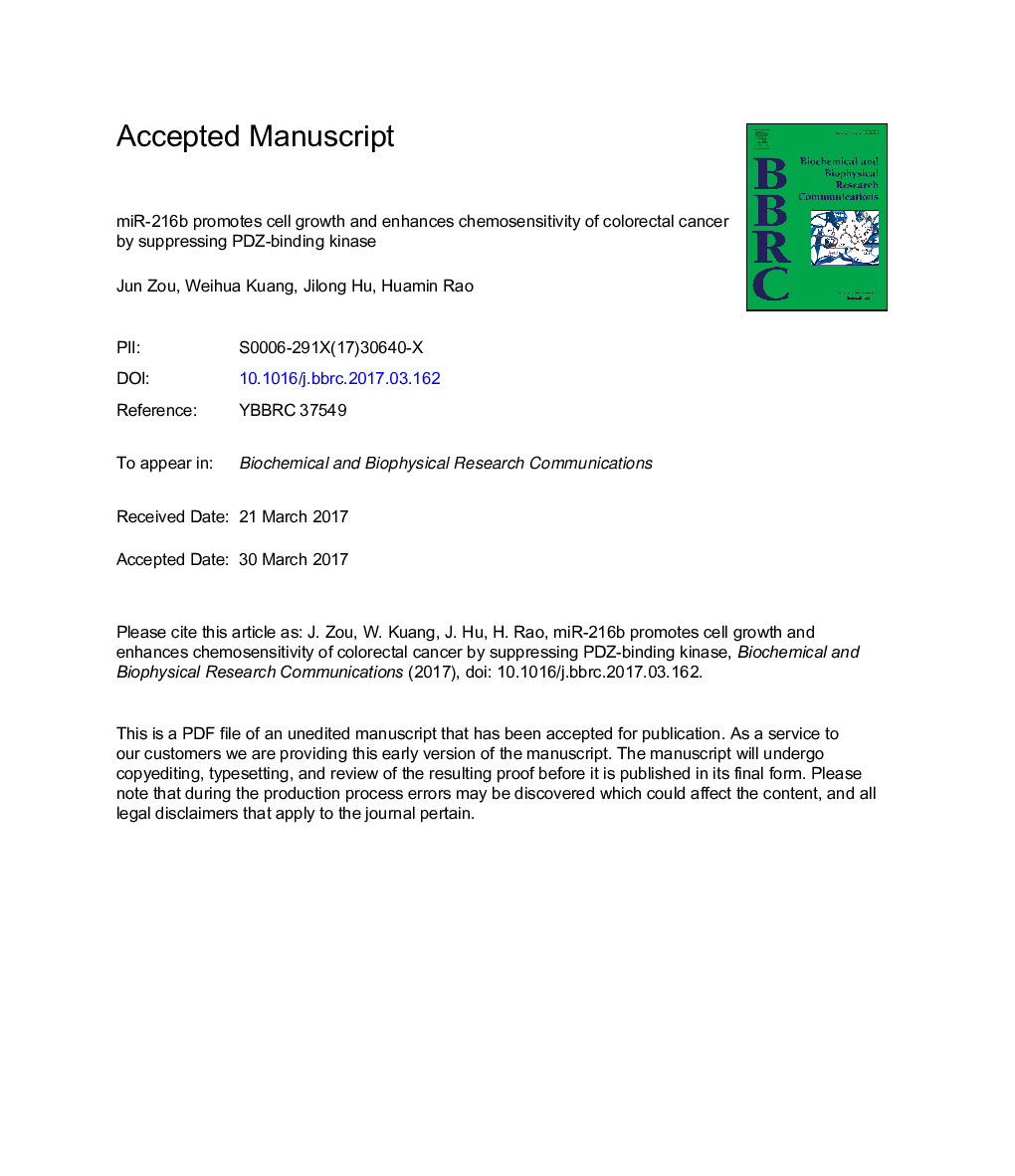| Article ID | Journal | Published Year | Pages | File Type |
|---|---|---|---|---|
| 5505768 | Biochemical and Biophysical Research Communications | 2017 | 19 Pages |
Abstract
PDZ-binding kinase (PBK/TOPK) acts as oncogene in various cancers and correlates with drug response. However, few studies have examined the expression and roles of PBK in colonrectal cancer (CRC). In this study, we found a significant increase in the expression of PBK in CRC tissues and cell lines. While overexpression of PBK promoted cell growth and decreased the toxicity effect of oxaliplation (OXA), targeting PBK with short hairpin RNA (shRNA) or novel PBK inhibitor HI-TOPK-032 effectively suppressed tumor growth and potentiated chemosensitivity in vitro and in vivo. Furthermore, there was a significant inverse correlation between the expressions of miR-216b and PBK. Further found that miR-216b could down-regulate PBK levels by binding to the 3â² untranslated region (3â²UTR) of PBK. Notably, while miR-216b decreased cell proliferation and enhanced sensitivity of CRC cells to oxaliplation, re-expression of PBK dramatically reversed these events. Collectively, our data indicated that miR-216b may function as a tumor suppressor though regulating PBK expression, which provided promising targets and possible therapeutic strategies for CRC treatment.
Keywords
Related Topics
Life Sciences
Biochemistry, Genetics and Molecular Biology
Biochemistry
Authors
Jun Zou, Weihua Kuang, Jilong Hu, Huamin Rao,
